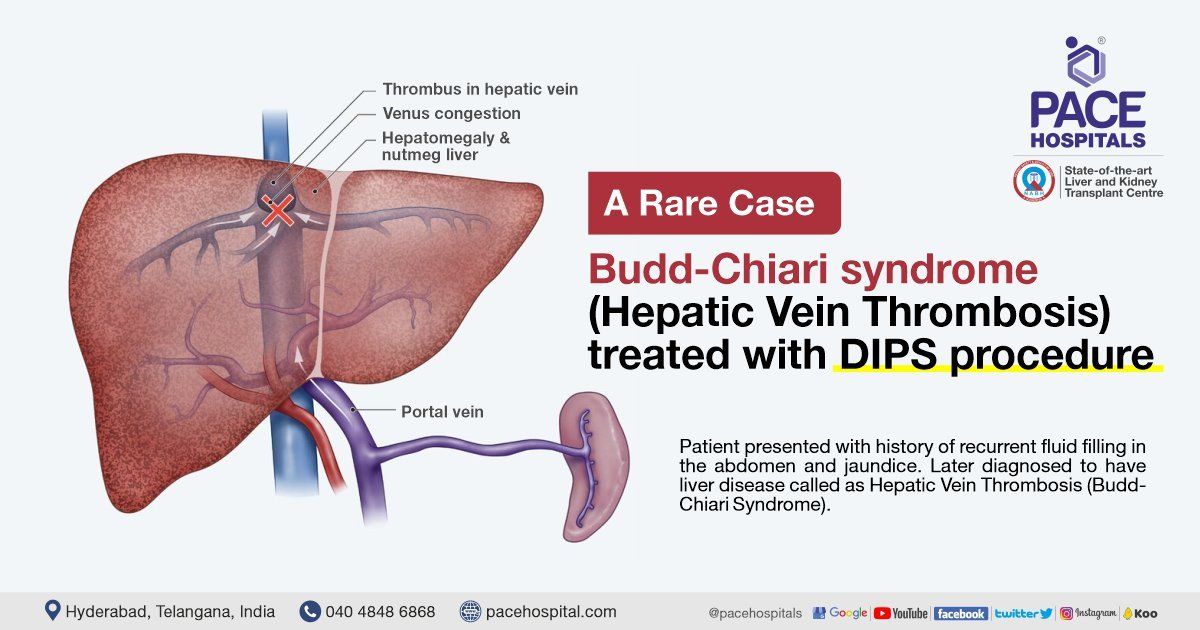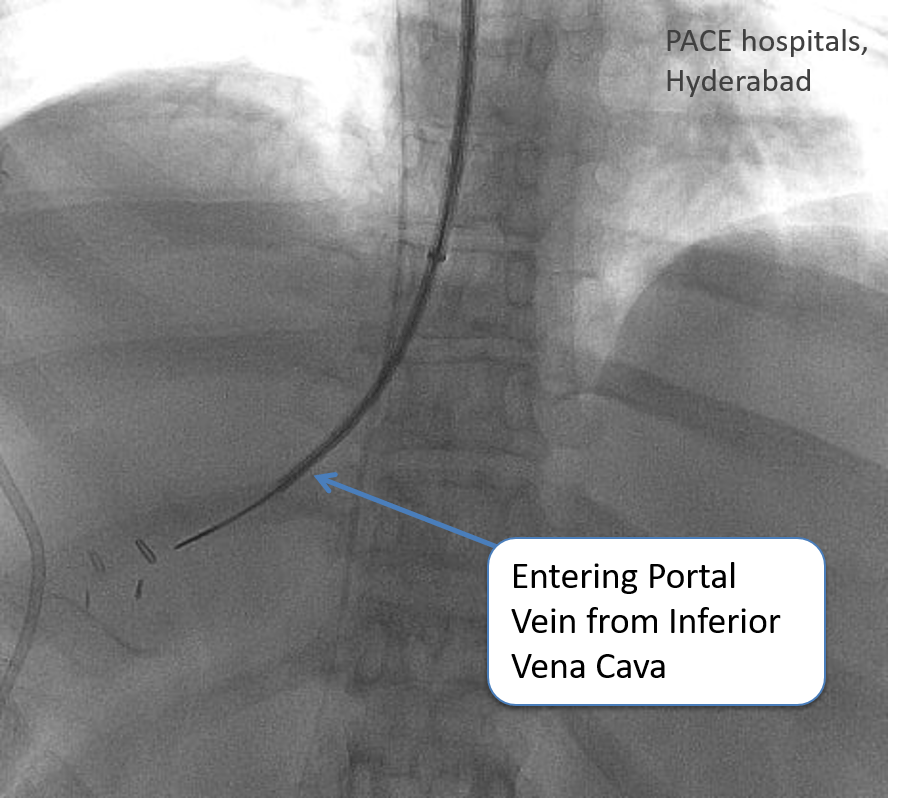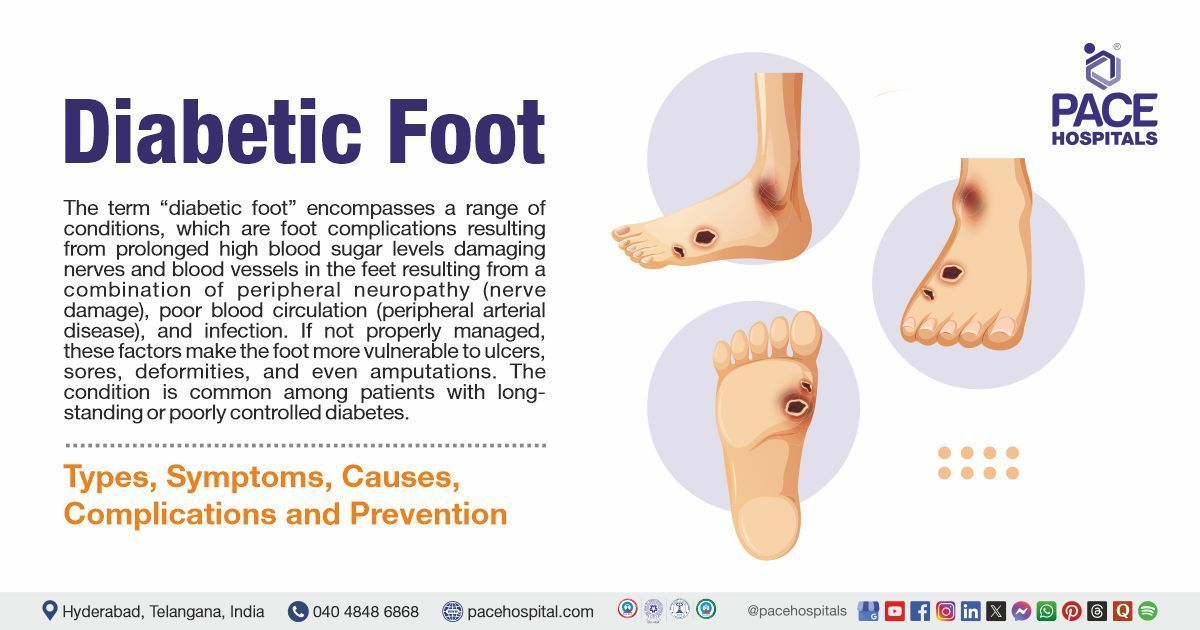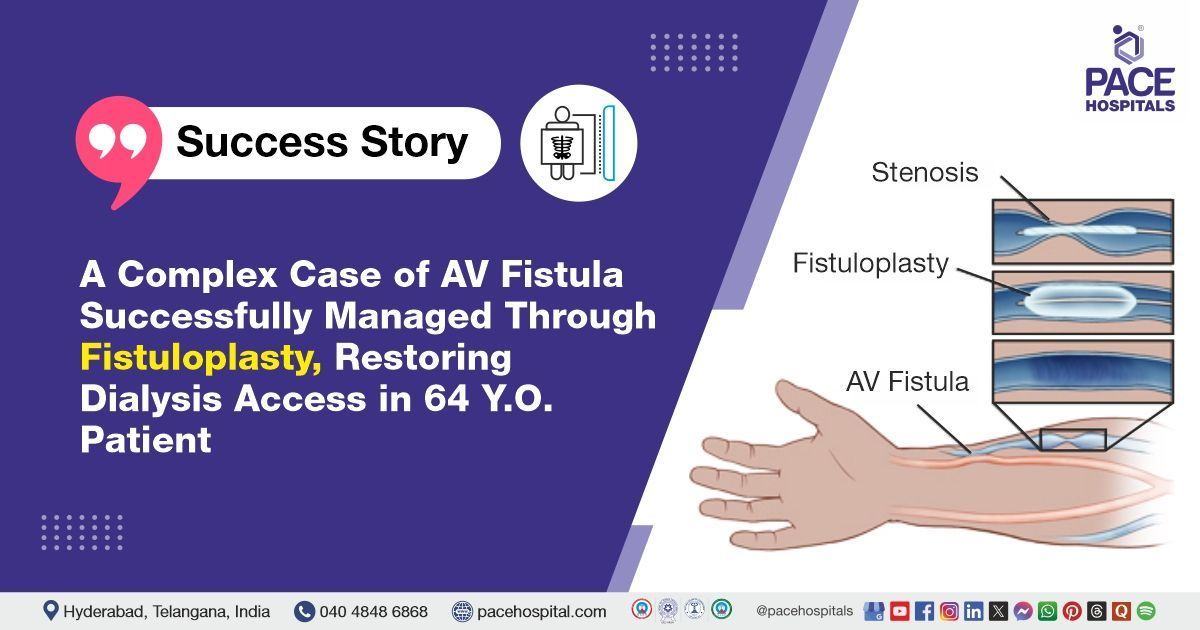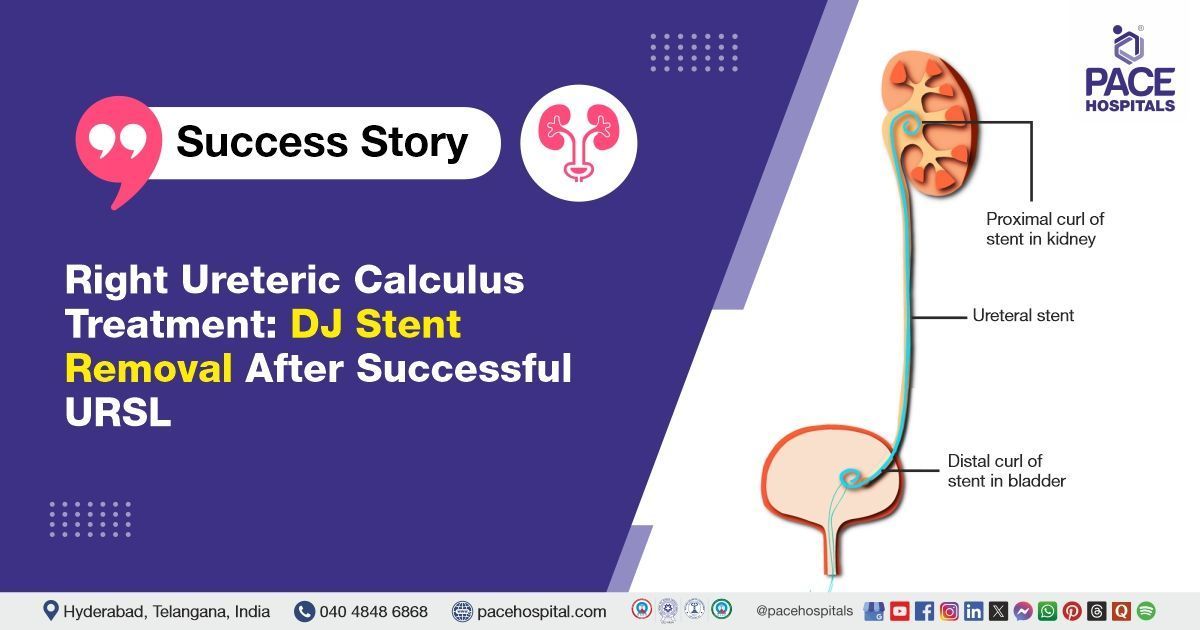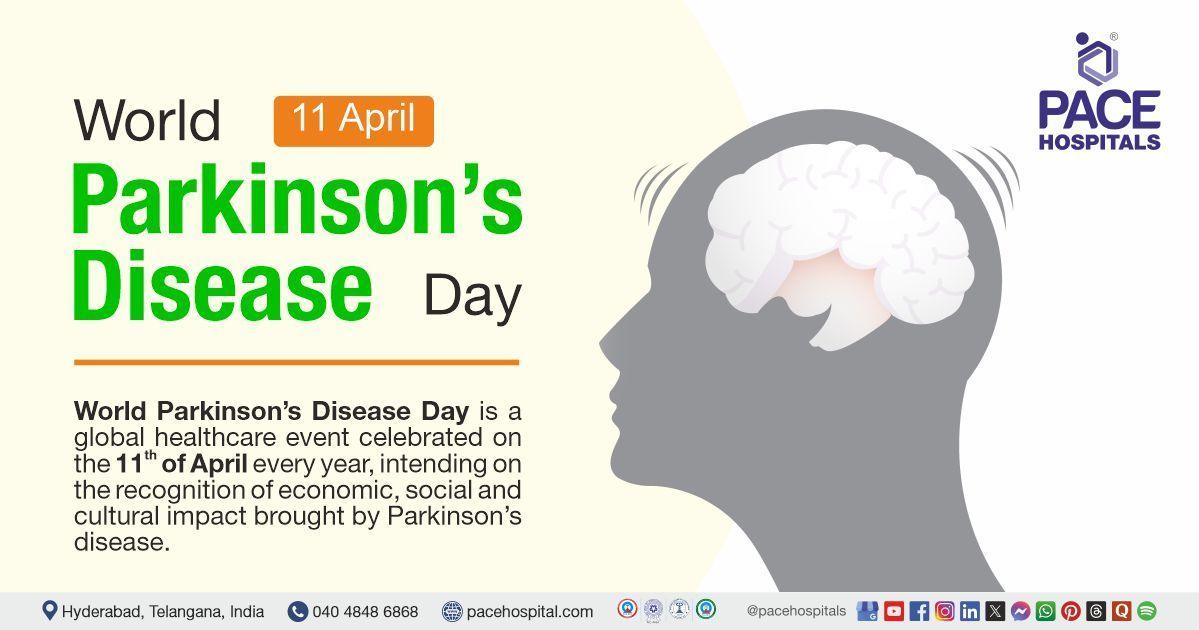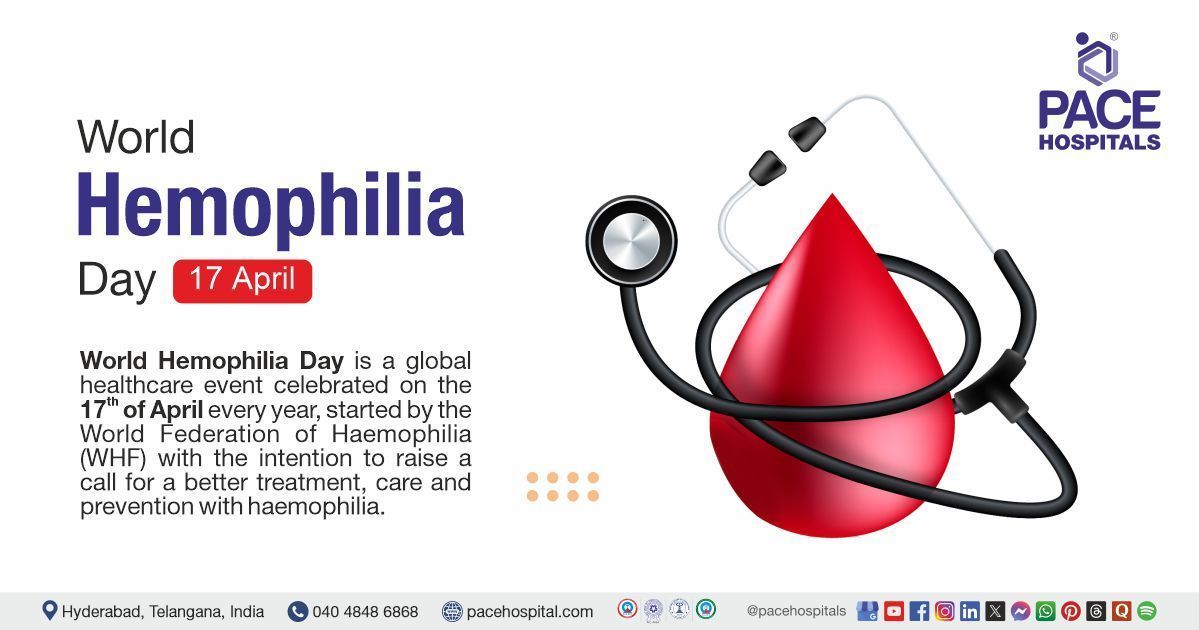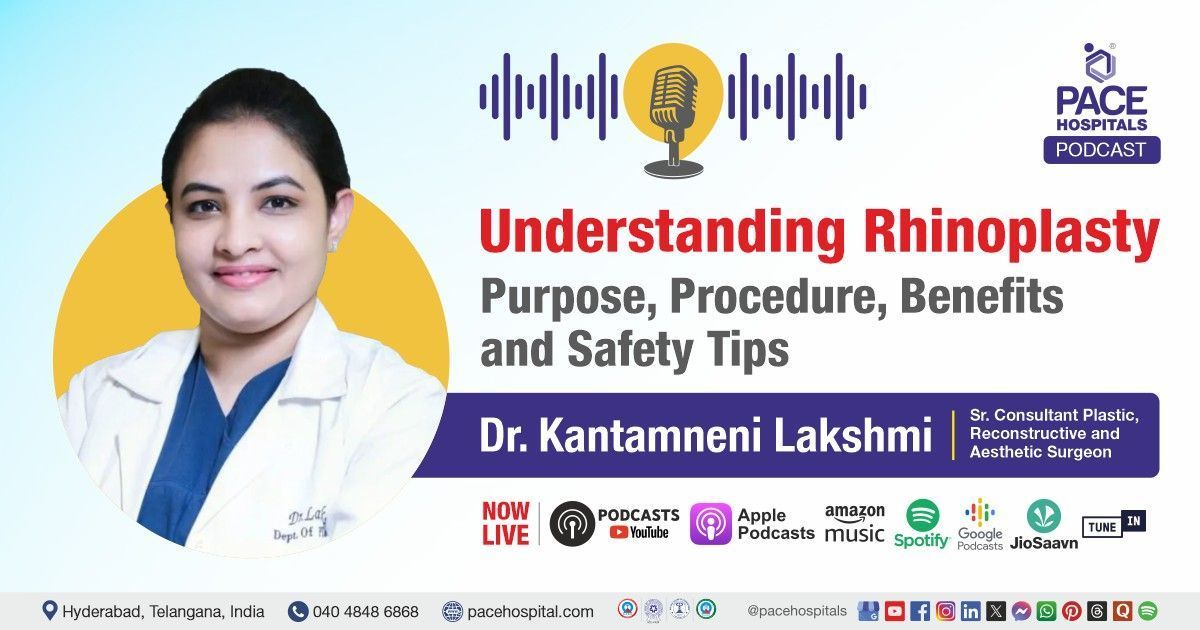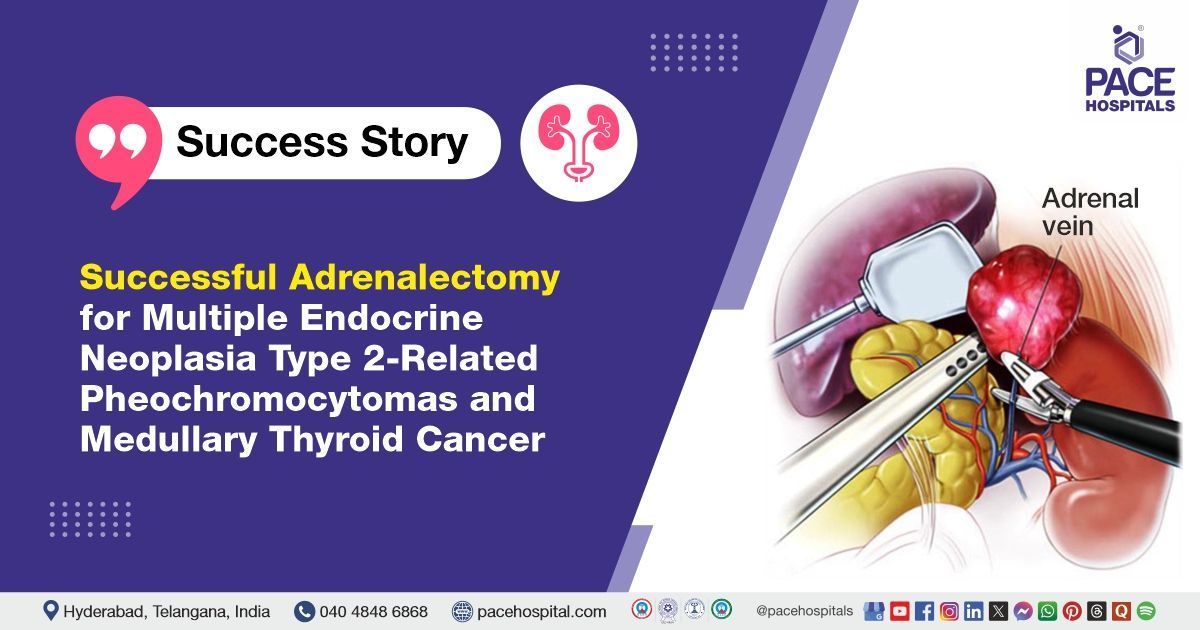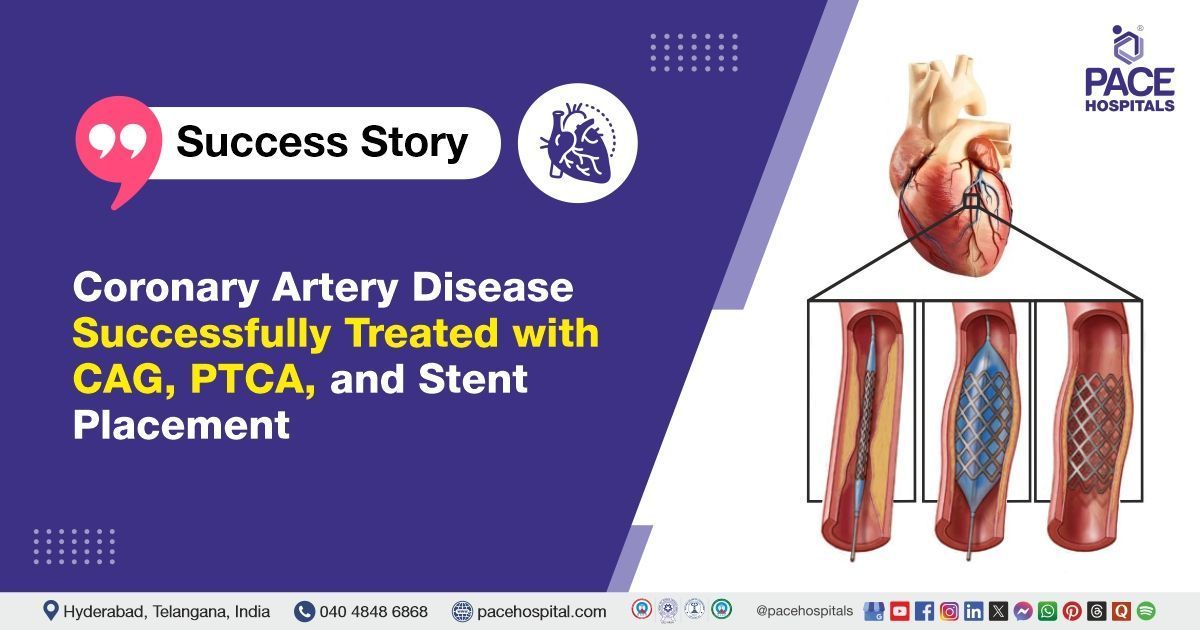Budd-Chiari syndrome (Hepatic Vein Thrombosis) treated with DIPS procedure
A 45-year-old female presented with a history of recurrent fluid filling in the abdomen and jaundice. She was diagnosed to have liver disease. She had to undergo repeated painful procedures of removal of fluid from the abdomen, which required multiple hospitalizations.
Although she was evaluated at various other hospitals, her exact cause of liver disease and recurrent fluid filling in the abdomen is not diagnosed. In PACE Hospitals we were able to diagnose the condition as Budd-Chiari syndrome.
The patient normal liver veins which carry the blood back to the heart were all blocked. Due to the blockage of these veins venous pressure in the liver and abdominal veins increased leading to liver disease and repeated fluid accumulation in the abdomen.
So to treat this condition, we did an interventional radiology procedure called Direct Intrahepatic Portosystemic Shunt (DIPS).
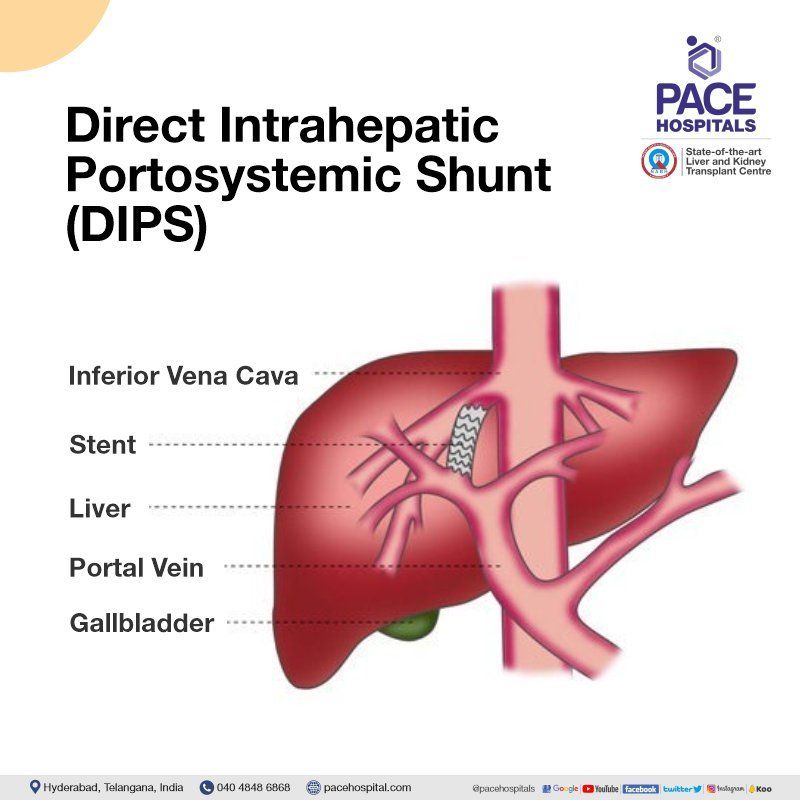
DIPS or TIPS (Transjugular Intrahepatic Portosystemic Shunt) is considered as one of the most difficult interventional radiology procedure. It is performed in only a handful of centers in India.
Dr. Lakshmi Kumar Chalamarla,
who is specially trained in liver related interventional radiology procedures, could accomplish this task in just 30 minutes. We also have the
Philips Azurion Cath Lab
- the next generation image-guided therapy platform and other equipment to perform these procedures.
DIPS Procedure - images
Post procedure, the patient’s complaints of fluid filling in the abdomen decreased and there is no need of fluid removal from the abdomen now. Her liver condition also improved, which increases her life span and also postpones or avoids the need for liver transplantation.
What is Budd-Chiari syndrome?
Budd-Chiari syndrome is a condition in which the outflow of blood from liver is obstructed. The obstruction can be due to clotting in smaller veins (hepatic veins) or larger vein (inferior vena cava). The stagnant blood in the liver causes liver cell damage.
What are the causes of Budd-Chiari syndrome?
Budd-Chiari Syndrome is more commonly seen in patients who are prone to clotting of blood due to certain blood disorders like myeloproliferative disorders, polycythaemia or sickle cell anaemia. Pregnancy and oral contraceptive pills usage are also risk factors. Other causes are webs in inferior vena cava (which is a large vein that carries blood from legs and lower body to the heart), trauma, infections, and other rare diseases.
What are the symptoms of Budd-Chiari syndrome?
This presents with symptoms like
- abdominal pain
- abdominal fullness (due to fluid accumulation)
- jaundice (yellowish discoloration of eyes)
- blood vomiting
- black colored stools
- swelling of legs
- altered mental state
How is Budd-Chiari syndrome diagnosed?
Budd-Chiari syndrome is diagnosed using imaging techniques like Ultrasound Doppler, CT venogram or MR venogram. Underlying blood disorders are diagnosed by doing blood tests. The extent of liver damage is assessed by biopsy or by testing liver elasticity or by estimating the pressure in liver veins.
How is Budd-Chiari syndrome treated?
If Budd-Chiari syndrome is detected early, medicines to break the clots can be used for treatment. But most of the time this is detected late. These patients can be treated with interventional radiology techniques. These techniques include opening the blocked vein using balloon (angioplasty) or stent. In patients with veins not amenable for opening, TIPS procedure can be done. In this procedure, a new outflow to liver blood is created by bridging the inflow vessel (portal vein) and the inferior vena cava.
In patients with very severe acute disease or very late disease with permanent liver cell damage liver transplantation is the treatment offered.
What is the prognosis of Budd-Chiari syndrome?
It depends upon the time of detection. Prognosis is better for those detected early before severe liver damage.
How to prevent Budd-Chiari syndrome?
Early detection of blood disorders and their close monitoring is the best possible way to prevent this condition
Request an appointment
Fill in the appointment form or call us instantly to book a confirmed appointment with our super specialist at 04048486868
Appointment request - health articles
Thank you for contacting us. We will get back to you as soon as possible. Kindly save these contact details in your contacts to receive calls and messages:-
Appointment Desk: 04048486868
Whatsapp: 8977889778
Regards,
Pace Hospitals
Hitech City and Madinaguda
Hyderabad, Telangana, India.
Oops, there was an error sending your message. Please try again later. We will get back to you as soon as possible. Kindly save these contact details in your contacts to receive calls and messages:-
Appointment Desk: 04048486868
Whatsapp: 8977889778
Regards,
Pace Hospitals
Hitech City and Madinaguda
Hyderabad, Telangana, India.
Our Locations – Find the Best Hospital Near You
Metro Pillar Number C1772, Beside Avasa Hotel, Hitech City Road, Near HITEC City Metro Station, Hyderabad, Telangana, India.
Mythri Nagar, Beside South India Shopping Mall, Hafeezpet, Madeenaguda, Hyderabad, Telangana, India.
040 4848 6868
Payment in advance for treatment at PACE Hospitals, Hyderabad, Telangana, India (Pay in INR ₹)
For Bank Transfer:-
- Bank Name: HDFC
Company Name: Pace Hospitals
A/c No.50200028705218
IFSC Code: HDFC0000545 - Bank Name: STATE BANK OF INDIA
Company Name: Pace Hospitals
A/c No.62206858997
IFSC Code: SBIN0020299
Scan QR Code by Any Payment App (GPay, Paytm, Phonepe, BHIM, Bank Apps, Amazon, Airtel, Truecaller, Idea, Whatsapp etc).

CONTACT US
Call: +914048486868
WhatsApp: +918977889778
Email: info@pacehospitals.in
FOLLOW US
SUBSCRIBE
Subscribe to our newsletter and stay updated with the latest health information.
Subscribe to PACE Hospitals' Public Newsletter
Thank you for subscribing to PACE Hospitals' Newsletter. Stay updated with the latest health information.
Oops, there was an error. Please try again submitting your details.
ABOUT US
QUICK LINKS
Disclaimer
General information on healthcare issues is made available by PACE Hospitals through this website (www.pacehospital.com), as well as its other websites and branded social media pages. The text, videos, illustrations, photographs, quoted information, and other materials found on these websites (here by collectively referred to as "Content") are offered for informational purposes only and is neither exhaustive nor complete. Prior to forming a decision in regard to your health, consult your doctor or any another healthcare professional. PACE Hospitals does not have an obligation to update or modify the "Content" or to explain or resolve any inconsistencies therein.
The "Content" from the website of PACE Hospitals or from its branded social media pages might include any adult explicit "Content" which is deemed exclusively medical or health-related and not otherwise. Publishing material or making references to specific sources, such as to any particular therapies, goods, drugs, practises, doctors, nurses, other healthcare professionals, diagnoses or procedures is done purely for informational purposes and does not reflect any endorsement by PACE Hospitals – your trusted hospital near me.

